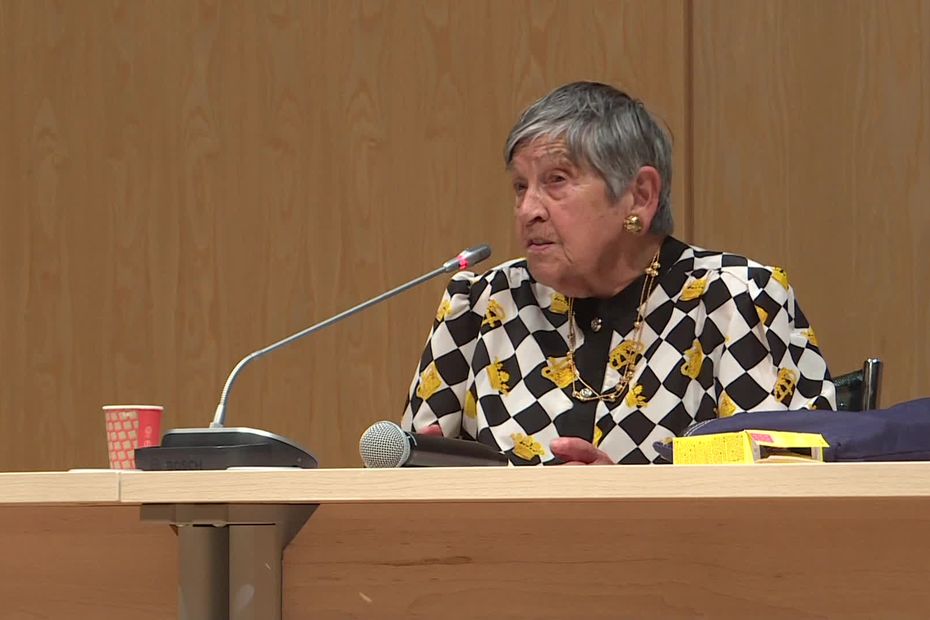At 97, the former deportee tirelessly tells her story to educate future generations and train new “memory carriers”.
The meeting took place this Thursday, May 19 at the Limoges Resistance Museum: Ginette Kolinka97, one of the last survivors of the concentration camps, is revenue on his journey in front of students from several colleges in Haute-Vienne.
Ginette KolinkaJewish and atheist, grew up in Aubervilliers with her parents, her five sisters and her brother.
After the start of the war, in July 1942, his family joined the free zone and took refuge in Avignon.
On March 13, 1944, following a denunciation, Ginette Kolinka is stopped by the Gestapo with his father, his brother, and his nephew. She is 19 years old. A month later, the family was deported to the Auschwitz-Birkenau camp. His father and his brother are gassed. Ginette Kolinka joined the women’s side.
In May 1945, she changed sides, and on her arrival, she is welcomed by the Allies, winners of the war. She then weighed 26 kilos. She finds in Paris the members of her family who survived: his mother and four of his five sisters.
During her story, Ginette Kolinka describe without detour and without taboo of things that we do not find in history books: a detailed experience of his conditions of detention. She talks about hygiene, explains how the deportees relieved hundreds of them in the same hole, how they disinfected their wounds with their urine to avoid dying of an infection.
Everything was thought out to humiliate them, like having their sex and hair shaved when they arrive. Selon Ginette Kolinka, “lhumiliation was a way of killing us”.
She also recounts having advised her father and brother to get into a German truck when they arrived at the concentration camp. The vehicle was supposed to allow the most tired to rest. CThe truck actually took them straight to the gas chambers.
Despite this chilling story, she speaks to young people with humor and kindness: “I don’t want to make you cry, I want to show you how far hatred can lead, and make you transmitters of memory. Everything that happened was because Hitler and the Nazis hated the Jews. It is hatred, the departure, the common thread. No need to look for anything else.”
If she tells again, it is to convey this message, to further sensitize students and teachers clearly affected by this meeting. And Ginette Kolinka concludes, with a touch of playfulness: “At my age, I shouldn’t leave the house. In my building, I’m the little old woman on the first floor. And there, look how many of you are questioning me! I’m the queen, and it’s not unpleasant…”
–


